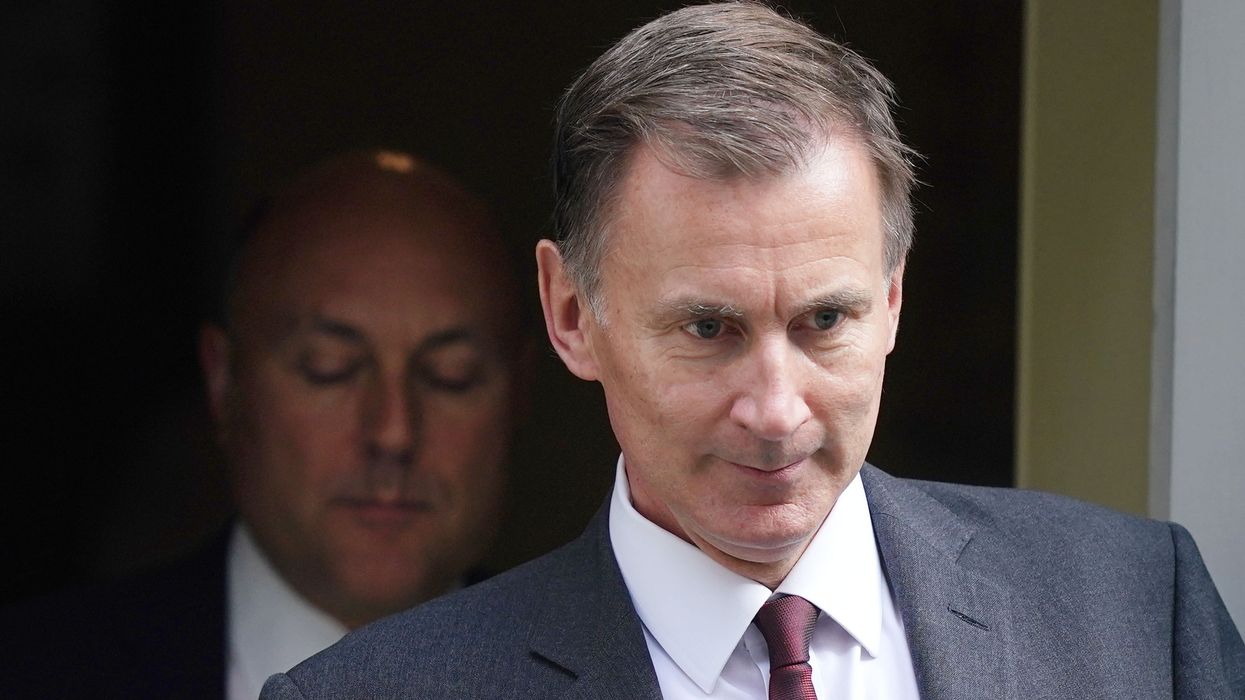Cost of living payments ‘not enough’ and Universal Credit rates should be boosted instead, MPs tell Hunt

Jeremy Hunt announced a £900 cost of living payment scheme for people on low income this financial year and £150 Disability Cost of Living Payment
|PA

The government launched a £900 cost of living payments scheme for people on certain means-tested benefits, a £150 Disability Cost of Living Payment and up to £300 for pensioner households this financial year
Don't Miss
Most Read
Cost of living support payments have not been enough to meet the scale of the problem and only offer respite in the short-term, MPs have warned.
The cross-party Work and Pensions Committee have called for the Government to consider widening the eligibility for future payments and to take more account of the financial challenges people with disabilities and families face.
In a new report, the MPs also suggested the Government consider uprating Universal Credit, instead of issuing cost of living payments to people on the benefit.
The report said: “Given we have also heard that an uplift of the regular benefits received would be more beneficial for budgeting than ad-hoc cost-of-living support payments, the Government should consider uprating universal credit instead of issuing these payments.

Cost of living payments 'not enough to meet scale of problem', MPs have warned
|PA
“It should maintain the ad-hoc payment system for those on legacy benefits as these benefits cannot be so easily uprated.”
In the report, MPs said they were “particularly” worried that the Disability Cost of Living Payment is only a one-off sum of £150.
They said: “We are particularly concerned that the additional support offered to those with disabilities was only £150 per year and we recommend that this particular support be increased in proportion to the costs that people with disabilities incur.”
The recommendations follow an inquiry examining the package of support introduced to help people receiving benefits amid rising energy costs and inflation.
The committee, which received nearly 2,000 survey responses from those with first-hand experience of cost-of-living payments, said it acknowledges the important impact the payments have made and the speed of distribution.
However, it said the nature of the payment system has placed significant limitations on how it has met the needs of different groups, such as families, older people and those with disabilities.
They argued any future cost of living support payments should take account of family size.
The report also proposed financial support for those with disabilities should be increased in proportion to the additional costs they incur.
The committee suggested guidance to local authorities to the Household Support Fund should be clarified, to make clear the potential eligibility of some people with no recourse to public funds, who are currently missing out on help.
The Household Support Fund means local authorities in England can make discretionary payments to people in need of help towards bills.
The MPs also suggested the Government devise a policy to help low-income pensioner households who just miss out on Pension Credit being significantly worse off than those who can claim it.
Sir Stephen Timms, chair of the Work and Pensions Committee, said: “While the support payments have made an important impact in helping those most in need during these difficult times, the overall package has offered just a short-term reprieve for many, while others have slipped through the safety net altogether.
LATEST DEVELOPMENTS:

Sir Stephen Timms is the chair of the Work and Pensions Committee
|PA
“Families with children need support over and above the flat rate on offer while the extra £150 a year paid to those with disabilities, who incur unavoidable extra expenses, barely touches the sides.
“There are also low-income households receiving only housing benefit currently deemed ineligible for the extra help, while some eligible people with no recourse to public funds are being denied access to the household support fund because of unclear guidance to councils.
“It is vital that the Government listens to those with everyday experience of support payments so it learns important lessons should a new package of support be required in the future. Ministers should get ahead of the game by bringing forward their evaluation of the measures and at the same time give serious thought to changes to the wider benefit system that would make ad-hoc payments less necessary.”
The report was released as Joseph Rowntree Foundation (JRF) published research suggesting that 17 per cent of low income families have turned off their fridge or freezer at some point during the cost of living crisis, in response to rising prices.
Almost half (46 per cent) of this group said they had turned off their fridge or freezer for the first time in the past six months, according to research carried out by Savanta last month.
Peter Matejic, chief analyst at the JRF said: “The picture isn’t getting better for low income families even as inflation starts to come down.”
A DWP spokesperson said: “The cost of living payments have provided a significant financial boost to millions of households - just one part of the record £94 billion support package we have provided to help with the rising cost of bills.
“This includes a 10.1 per cent rise to benefits earlier this year, and we’re investing £3.5billion to help thousands into jobs – the best way to secure their financial security in the long-term.
“Ultimately, the best way we can help families is to reduce inflation, and we’re sticking to our plan to halve it this year, taking the long-term decisions that will secure the country’s financial future.”










